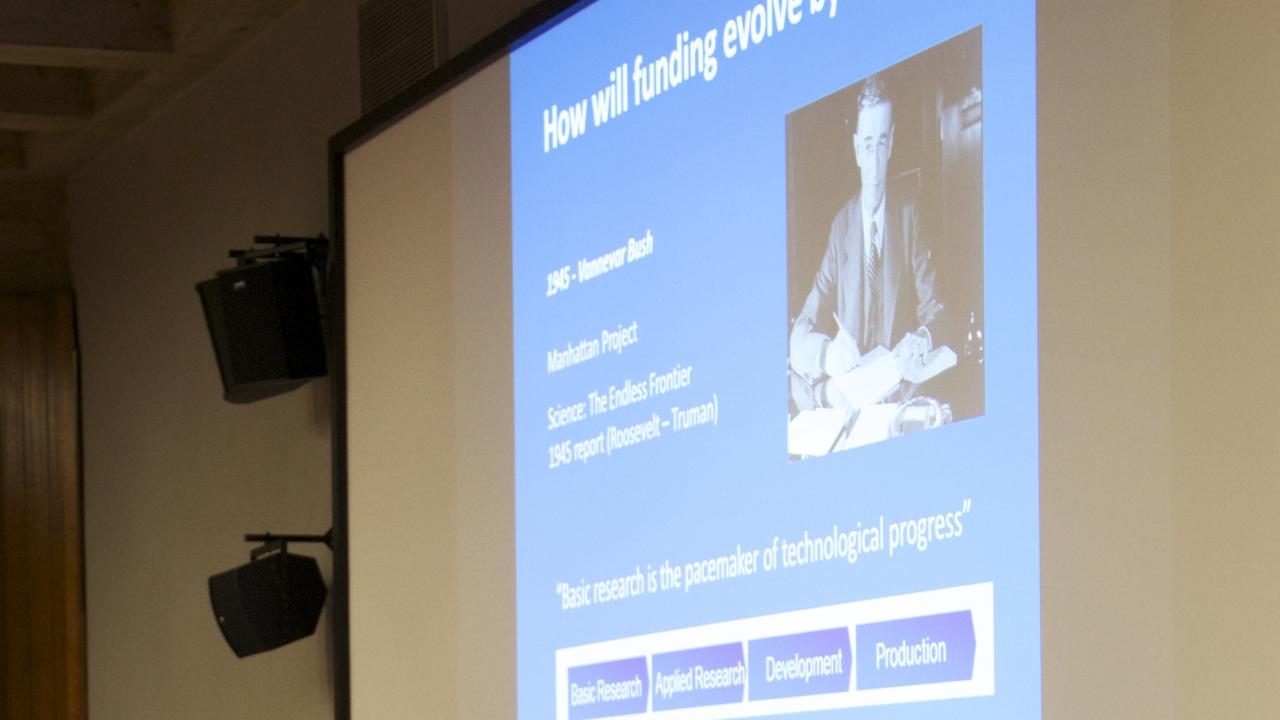
In appropriate commemoration of the International Year of Light 2015, for which ICTP will serve as the Global Secretariat, and the 2014 Nobel Prize in Physics, which was awarded to the developers of blue light-emitting diodes, ICTP's 50th anniversary celebrations continued Wednesday morning with a roundtable on the history and future of optics.
Historical perspectives came from Nobel laureate Roy Glauber of Harvard University, one of the founders of the field of quantum optics, and Alain Aspect of the Institut d'Optique in France, who pointed out the deep relationship between optics and quantum mechanics. "In the last 110 years, optics has always been at the cutting edge of quantum physics," Aspect said. Quantum mechanics began because of measurements of efficiency of light, added roundtable moderator Massimo Inguscio of the Istituto Nazionale di Ricerca Metrologica.
Aspect predicted that quantum atom optics would continue to see important developments in the next five years. Peter Zoller of the University of Innsbruck agreed: "Light is the toolbox to control quantum systems in the future."
Light is already in the news due to Tuesday's announcement of the Nobel Prize in physics, awarded to Isamu Akasaki, Hiroshi Amano, and Shuji Nakamura "for the invention of efficient blue light-emitting diodes which has enabled bright and energy-saving white light sources," according to the announcement. "Yesterday's Nobel Prize is one example to show that we find light very useful," Zoller said.
Many physicists hope to keep optics in the limelight with next year's International Year of Light. Eugene Arthurs of SPIE, the International Society for Optics and Photonics, began his presentation with a brief video introducing IYL2015, and John Dudley, President of the European Physical Society and the Chair of the IYL2015 Steering Committee, urged scientists to use the year as an opportunity to engage the public and policymakers. "This is a unique chance to show our vision for the future, and the last chance for a long time to promote physics on the international level," Dudley said.
Arthurs encouraged ICTP to continue its work in optics: "We are proud to support optics and education programmes at ICTP, and look forward to continued scientific and moral leadership from this wonderful centre."
















